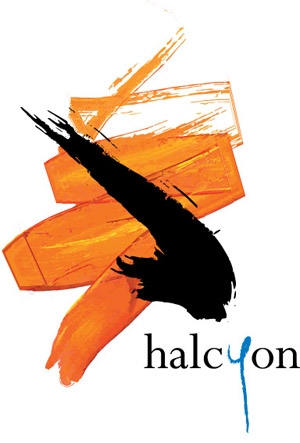Review by Victoria Watson, Sounds Like Sydney, June 2019
Concert Review: The Art Of Disappearing/ Halcyon/ Geist String Quartet
The Art of Disappearing
Halcyon/ Geist String Quartet
Saturday June 1st 2019
Annandale Creative Arts Centre
The Art of Disappearing is new song cycle by exciting young Sydney composer, Cameron Lam, set to the poetry of celebrated Queensland writer Sarah Holland-Batt. The work has been recorded on the Kammerklang label and the concert served as both the premiere live performance and launch for the recording.
“I’ve always envied poets for their ability to articulate what they want to say, and singers for their ability to declaim it….This work is dedicated to mezzo-soprano Jenny Duck-Chong and is written to highlight her emotional wisdom, precise and rich colour palette, and her ability to lead an ensemble”
With these words from the programme notes, Cameron Lam celebrates a ten-year collaborative association with Duck-Chong and her groundbreaking Halcyon ensemble. He has high praise also for Geist String Quartet….“whose honest feedback and incredible gusto honed the instrumental movements greatly.”
Violinists Sonia Wilson and Mia Stanton, violist Hayasa Tanaka and cellist James Larsen delivered the work sensationally, relishing adventurous extended skills with an intense attention to making connections through sensitivity to the word-painting. The instrumentalists demonstrated a commitment to the improvisatory aspects and rhythmic complexities of the string quartet movements which created a buzz of anticipation among the audience for each new chapter. The string quartet movements between songs explore time through structure and playful invention. Lam’s String Quartet no.2 alone can be experienced online together with a video dance performance choreographed by Louisa Poletti. This is hybrid 21st century art-making at its most thrilling.
For the song cycle, first and foremost stands the inspiring poetry from Holland-Batt’s award winning debut publication Aria .The poetry is both deeply engaging and equally mysterious, achieving emotional power and clarity of narrative. The language is perfectly musical – from the title of her book to the rolling rhythmic alliteration of lines like: “This ever more escaping grasp of things” “These are the ruins that ruined us” and “This is the sheet music, these are the books” to the rap-like percussive character of “Funeral games-now all we fought for is dead. Throw the dice again, feel the years tumble From your fingertips like bones”
This is profound musing with a lyrical heart ripe for musical treatment.
The early songs explore minimalism through recitative-like chant (The Art of Disappearing), whimsical extended string techniques to create an eerie world of ephemeral mystery (Tracery) and a cascading fountain of pizzicati around rich contralto vocals (Meditation on the plums). Throughout, Lam explores the world of English word-painting that recalls the ingenuity of Purcell and Britten.
Lam’s setting of Elegie is the centrepiece of a mighty emotional landscape. “Tell me, was it here the future lapsed, Became an unusable gift…”
The lushest musical treatment of the cycle nostalgically recalls Baroque and Romantic soundworlds, where the rich harmonies become metaphors for memory and loss. The solo voice is left alone at the end yearning for the past: “Sing the old hymn again, the hallelujah”
Lam writes with assured confidence for Duck-Chong’s clear warm mezzo-soprano voice and the result is a perfect partnership of words, melody, emotion and cerebral contemplation. The poetry’s focus upon grieving and loss may have tipped the cycle into the maudlin, but not in these hands. Instead, a work has been created that is engaging and thought-provoking; serious, yet delightfully witty and ultimately uplifting in its humanity and vision.
This is truly inspiring contemporary writing for voice and string quartet. Including the string quartet as both accompaniment and in separate movements is no less than a stroke of brilliance. A stunning performance. I will be back to hear it again, in August at the City Recital Hall later in 2019.
Victoria Watson © Sounds Like Sydney
This review appeared in Sounds Like Sydney

